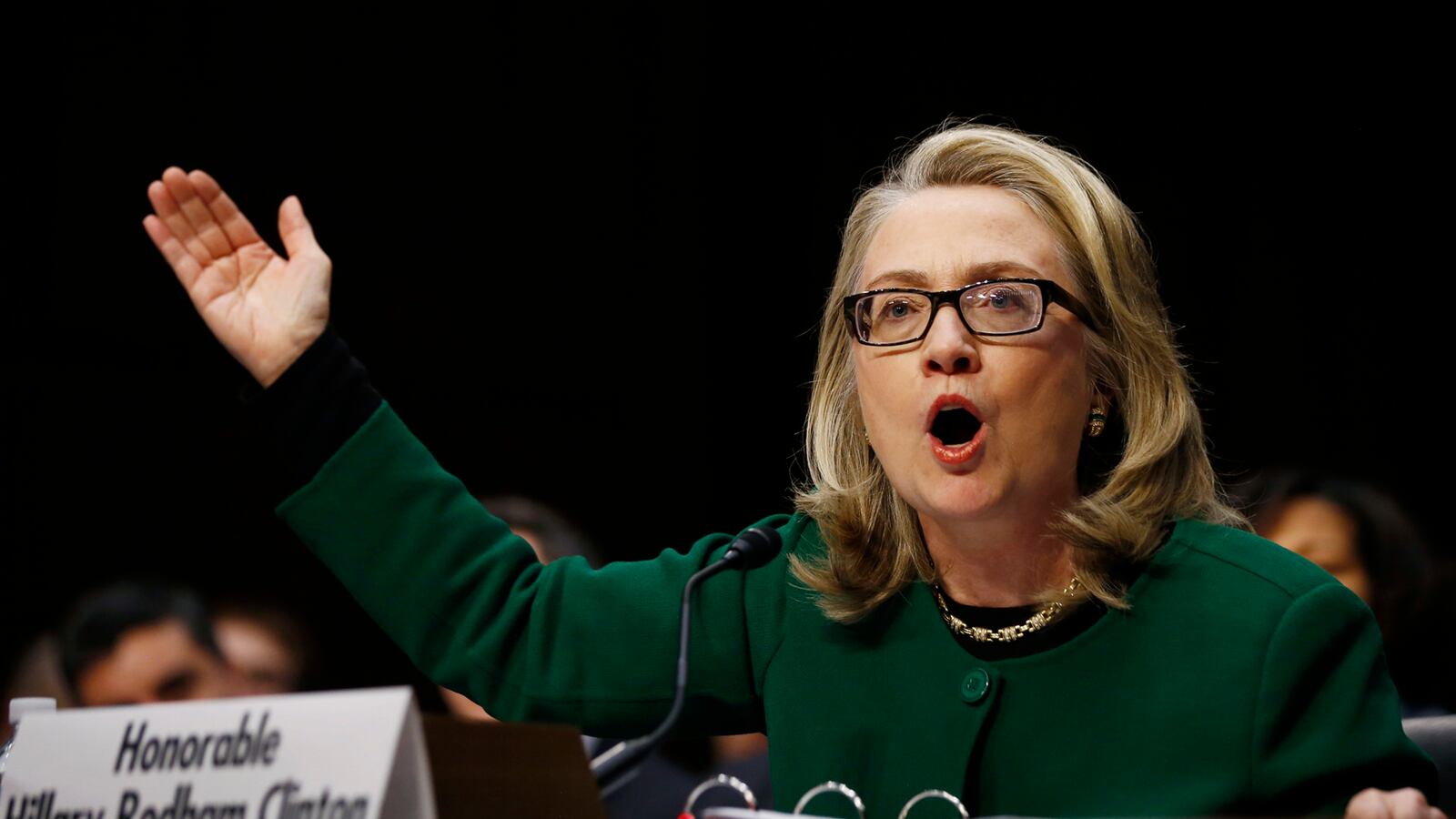When a Tunisian court released the only suspect in the Benghazi, Libya, attacks to have been arrested, it was a blow to the U.S. investigation to find the killers of Ambassador Chris Stevens and three other Americans. But the story didn’t end there. Outgoing Secretary of State Hillary Clinton Wednesday told the Senate Foreign Relations Committee that she has been assured that the suspect, Ali al-Harzi, is being monitored by the Tunisian government.

In one of the more explosive revelations of the day, Clinton also said the U.S. government was not able to present sensitive evidence on al-Harzi because it was an open court setting.
As The Daily Beast first reported, al-Harzi was a suspect in the attacks in part because he used social media during and after the attack to boast about the exploits of the 9/11-anniversary assault on the U.S. diplomatic compound. He was later picked up at the airport in Istanbul, where he was believed to be on his way to Syria. Al-Harzi’s brother is considered to be a midlevel planner for al Qaeda’s franchise in Iraq.
Al-Harzi’s release from jail by the court was not coordinated ahead of time with the U.S. government. But, Clinton said, “upon his release, I called the Tunisian prime minister. We have been assured that he is under the monitoring of the court.”
On the subject of the overall FBI investigation into Benghazi, Clinton said, “They are following some very promising leads and putting together cases. I think what they are trying to determine is how best to respond.”
Throughout the hearing Wednesday, Clinton was often poised, marshaling the complex facts of the government assessment and investigation of the incident with flair. In her opening statement, she got a little choked up, recalling the events that killed Ambassador Stevens.
At one point the mask of collected calm slipped. In a back and forth with Sen. Ron Johnson, a Republican from Wisconsin, Clinton’s voice rose slightly when asked why the American people were not told what the diplomatic security officers knew at the time of the attack—that it wasn’t a spontaneous protest tied to an anti-Islam film.
Clinton responded, “With all due respect, the fact is, we had four dead Americans. Was it because there was a protest or was it because there were guys who went out for a walk one night who decided they would kill some Americans?” she asked. “What difference at this point does it make? It is our job to figure out what happened and to do everything we can to make sure it never happens again.”
This was Clinton’s last appearance before Congress as secretary of state, and perhaps her frustration had been building up. Republicans had already sunk the career of Susan Rice, the U.S. ambassador to the United Nations, accusing her of misleading the public on the Benghazi attacks.
In her testimony, Clinton made the point that her top priority in those first days after the attacks was to figure out how to keep U.S. diplomats safe. She said the State Department didn’t want to interfere with the FBI investigation or question diplomatic-security officers who were witnesses to a crime scene. She explained that on the 11th anniversary of 9/11 she was dealing with protests at U.S. embassies throughout the Muslim world.
But she was adamant that there was no cover-up. The closest Clinton came to voicing contrition for the public statements about Benghazi after the attack was when she faulted the administration for not explaining how unclear the picture was on the evening of the attack. “I understand trying to figure out what was going on and why were we told this, that, and the other,” she told Sen. Jeff Flake, a Republican from Arizona. “I can only assure you, as the information came to light, we tried to share it, but that took some time.”
The back and forth between Clinton and Republican senators on the Senate Foreign Relations Committee may give insight into a potential political issue in 2016 if Clinton decides to run again for the presidency after Obama’s second term. Marco Rubio, the Florida Republican who is considered a frontrunner for his own party’s nomination, grilled Clinton about whether she was aware of the classified cables from diplomatic-security officers in Libya detailing the deteriorating security situation in Benghazi.
Clinton also responded to questions about last week’s hostage crisis in Algeria, including reports suggesting that some of the Benghazi attackers may have participated. Clinton said she could not confirm those reports. “It’s coming from the Algerian government related to some of the terrorists who they took alive. We don’t have anything to confirm it yet,” she said.






